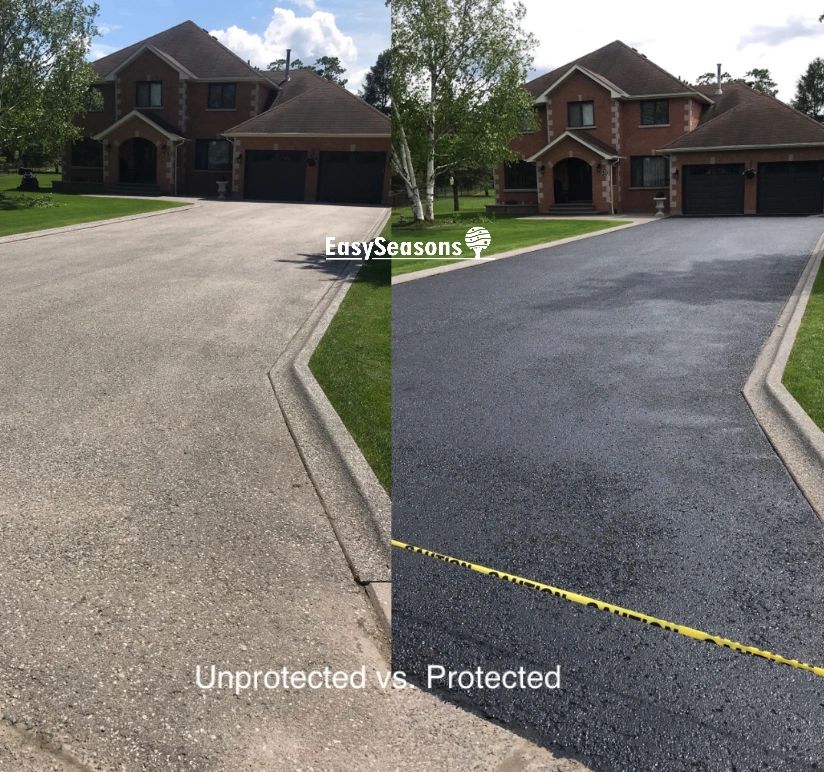Improve Durability with Cold Mix Asphalt: Expert Sealing Solutions
Cold Mix Asphalt Vs. Hot Mix Asphalt: Which Is Right for You?

Structure Differences
Cold mix asphalt is generated by emulsifying the asphalt binder with water and an emulsifying agent before mixing it with accumulation. The warm mix asphalt production process includes warming the aggregate and asphalt binder separately before incorporating them at the asphalt plant.
Moreover, chilly mix asphalt tends to be much less thick and a lot more versatile than hot mix asphalt. This versatility makes it far better matched for locations with greater levels of movement, such as driveways or roads with hefty website traffic. In comparison, warm mix asphalt is understood for its high longevity and resistance to rutting and fracturing, making it a recommended option for highways and high-traffic roads where long life is critical.
Installment Refine Variances
The process of mounting cold mix and hot mix asphalt displays notable variations in their demands and treatments. In contrast, hot mix asphalt requires an extra elaborate installation procedure. Due to the home heating needs, hot mix asphalt setups are usually brought out by professionals with customized tools, guaranteeing an extra permanent and structurally sound result.
Longevity and Longevity Elements
When taking into consideration asphalt choices, sturdiness and longevity are crucial variables to examine for long lasting pavement efficiency. Hot mix asphalt (HMA) is known for its phenomenal toughness and durability.
In regards to durability, HMA generally outperforms CMA as a result of its exceptional stamina and resistance residential properties. HMA pavements have a longer life span, calling for less frequent repairs and upkeep, which can translate to cost savings over time. Furthermore, HMA pavements are a lot more easily personalized to meet explanation details job needs, even more boosting their longevity.
Expense Considerations
Thinking about the economic effects is a vital element when assessing the selection between hot mix asphalt (HMA) and chilly mix asphalt (CMA) for sidewalk projects. While the first cost of warm mix asphalt is commonly higher than that of cool mix asphalt, HMA commonly offers a much more cost-efficient solution in the long run due to its exceptional resilience and long life.
In enhancement to material expenses, it's necessary to take into consideration the expenses linked with setup and maintenance when comparing HMA and CMA. Inevitably, the decision in between HMA and CMA ought to take visit here right into account not just the preliminary expense yet likewise the long-lasting economic ramifications to establish the most affordable alternative for the particular pavement project.
Environmental Influence Comparison
Contrast of the environmental effects between hot mix asphalt (HMA) and chilly mix asphalt (CMA) exposes unique differences in sustainability techniques. HMA manufacturing needs high temperatures, leading to raised power intake and greenhouse gas emissions.
Furthermore, making use of CMA often includes recycling existing asphalt pavement, advertising resource conservation and minimizing the quantity of waste sent to landfills. This reusing aspect better improves the sustainability of CMA contrasted to HMA. On the whole, when considering the environmental impact, CMA arises as an extra eco sustainable selection as a result of its reduced power demands, minimized emissions, and the potential for recycling existing materials. By choosing CMA over HMA, roadway construction projects can add favorably to ecological conservation initiatives.
Verdict
To conclude, the choice in between chilly mix asphalt (CMA) and hot mix asphalt (HMA) depends on different aspects such as composition, setup procedure, toughness, durability, cost, and ecological effect. asphalt repair. While CMA supplies a cost-effective and quick solution for minor repair work, HMA like this guarantees remarkable toughness and long life for rush hour areas. Think about these factors meticulously to establish which kind of asphalt is the ideal choice for your paving needs

Taking into consideration the monetary ramifications is an essential facet when evaluating the option in between warm mix asphalt (HMA) and cold mix asphalt (CMA) for sidewalk tasks. While the preliminary cost of warm mix asphalt is commonly higher than that of cool mix asphalt, HMA frequently gives a more affordable option in the long run due to its exceptional resilience and durability. asphalt patch repair.Contrast of the ecological impacts between warm mix asphalt (HMA) and cool mix asphalt (CMA) reveals distinctive distinctions in sustainability techniques.In final thought, the choice in between chilly mix asphalt (CMA) and warm mix asphalt (HMA) depends on numerous factors such as composition, installation procedure, resilience, long life, price, and environmental influence